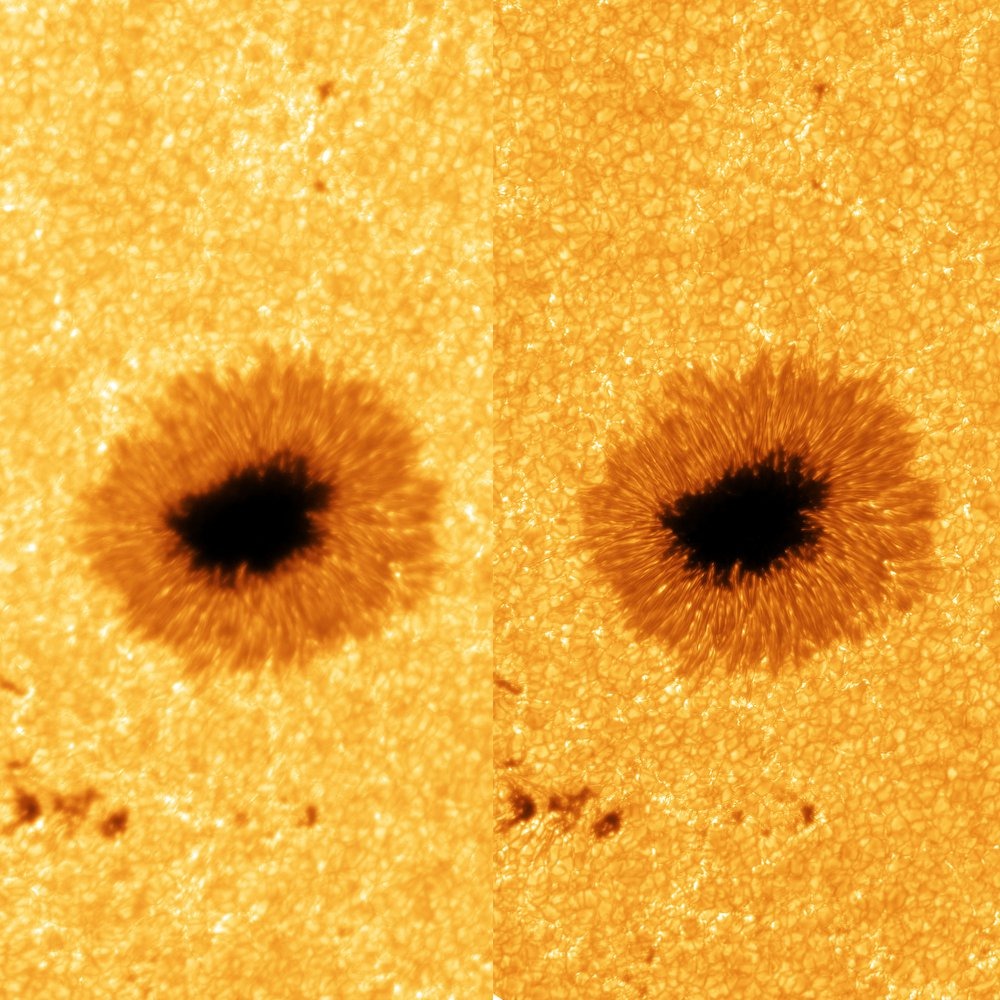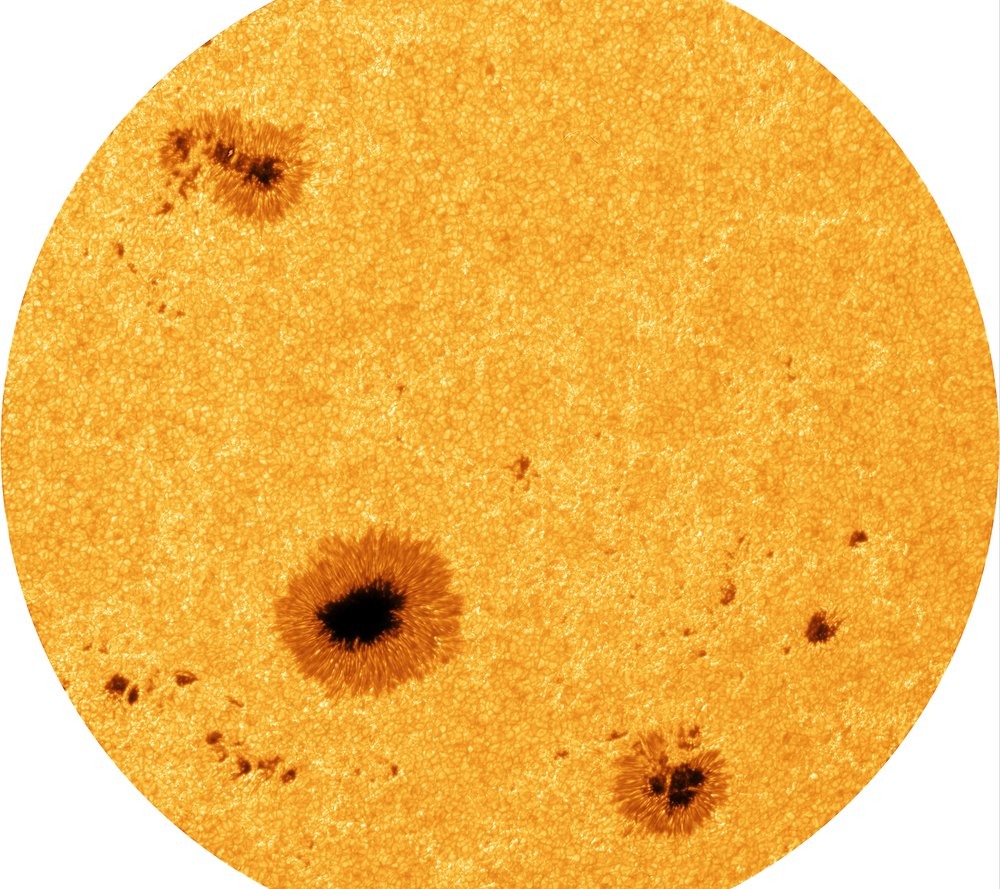Unimaginable new pictures of the solar’s floor present an unprecedented view of raging sunspots and photo voltaic exercise.
A brand new high-resolution digicam system developed by the Leibniz Institute for Astrophysics Potsdam (AIP) for the Vacuum Tower Telescope (VTT), situated on the Observatorio del Teide in Tenerife, reconstructed views of the sun with an 8K picture decision for the primary time, in line with a statement from AIP.
Photo voltaic observations typically face a trade-off between subject of view and determination. Giant photo voltaic telescopes present high-resolution pictures however cowl restricted areas, whereas smaller devices can monitor all the solar disk however lack nice element. Nevertheless, the VTT presents each a large subject of view and commendable spatial decision. The mixing of the brand new digicam system enhances this functionality, permitting for complete and detailed research of energetic photo voltaic areas.
“As a way to higher perceive solar activity, it’s essential not solely to research the elemental processes of the nice construction and the long-term growth of worldwide exercise with varied devices, but in addition to analyze the temporal evolution of the magnetic subject in energetic areas,” Rolf Schlichenmaier, a scientist on the Institute for Photo voltaic Physics (KIS) in Freiburg, which operates the VTT, stated within the assertion.
The brand new digicam system employs superior picture restoration methods, compiling 100 short-exposure pictures — every with a decision of 8000×6000 pixels — captured at 25 frames per second. This course of yields reconstructed pictures with 8K decision, successfully mitigating disturbances attributable to Earth’s atmosphere and reaching a spatial decision of roughly 62 miles (100 kilometers) on the solar’s floor.
Such precision permits the remark of dynamic photo voltaic processes on timescales as brief as 20 seconds, in line with the assertion.
Utilizing this know-how, researchers have obtained high-resolution pictures overlaying areas as much as 124,274 miles (200,000 km) in diameter, which is roughly one-seventh of the solar’s diameter.
In flip, the photographs reveal intricate particulars of sunspot teams, plasma flows and magnetic subject constructions that set off solar flares. This not solely enhances our understanding of advanced photo voltaic dynamics, however lends perception for improved house climate forecasting.

